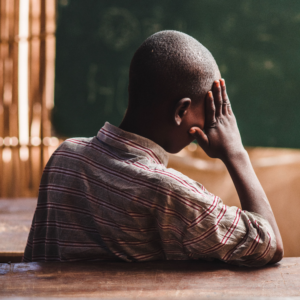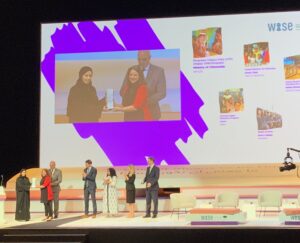Empowering displaced women and girls in Northeast Nigeria — Street Child

Strategies to grow
One of our strategies to improve women’s participation in sport focuses on advocating for their rights and building sensitivity among different stakeholders like youth leaders, religious institutions and the women themselves. We build this sensitivity by increasing their knowledge on the importance of sport, delivered through our information school and protection activities.
Along with sensitization, community stakeholders are also trained on the basic concepts of child protection, child safeguarding, gender-based violence and sexual violence. This helps them understand the safety plan we have in place and ensure our activities do not harm participating children. In our trainings, we also emphasize on the significance of women’s participation in sport.
Another effective strategy is training of trainers (ToT), wherein we encourage the recruitment of women, to ensure we have more female mentors and coaches. The facilitators are trained on our structured program of games and play, and on best practices of our organization, including important policies like child safeguarding.
We also employ the use of a gender-specific sport programming, ensuring that displaced women and girls have an exclusive and safe space for their sport activities. This has led to increased numbers of girls and women competing in sports such as sack race, egg race, bottle race, skipping and strategy games like ludo.
We noted that by using local sports and games that women and girls were more familiar with, such as “Charapke” and “Dara,” we found that more women and girls were likely to participate. In such communities, foreign games do not appeal to the local population, and the familiarity of the games allowed more women and girls to participate. These games also allow those women and girls that wear a hijab to participate with their headscarf on, boosting the acceptance of sport within the communities. Upon increased participation, we introduced other sports, such as volleyball, as participants and the larger community were more accepting of the overall participation of women and girls in the program.
SCoN has been actively involved in organizing events that promote participation of women and girls in sport. Recently, a series of activities was facilitated to commemorate the International Day of the Girl Child. It was held in collaboration with two local partners – Restoration of Hope Initiative (ROHI) and Royal Hope Heritage Foundation (RHHF). We engaged with girls at Yelwa Primary School Mubi, in the state of Admawa, under the auspice of our European Union-German Cooperation funded project. During the activity, girls and women competed in sack races, blindfold games, poetry recitation, song presentations, drama, and local games. A competition was also organized between boys and girls, to promote mixed-gender interactions. The activities were well received by the school authorities, the school board, community leaders and parents of the participating children.
Moving forward, it is hoped that the reach of SCoN’s sport-based interventions is strengthened, with an increase in women’s and girls’ participation at national and international levels.




